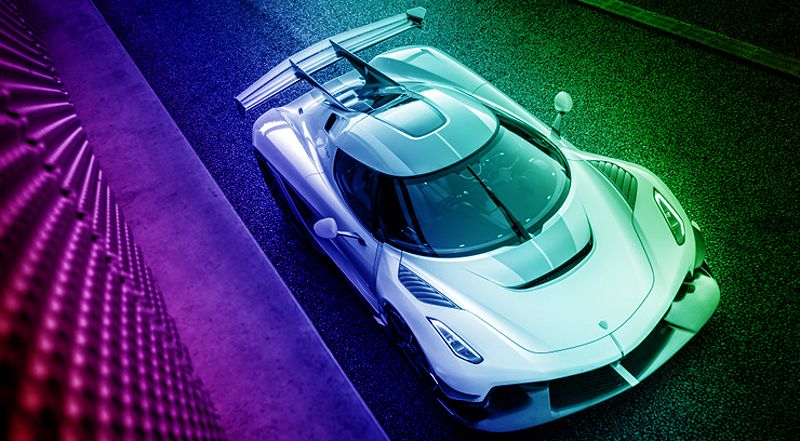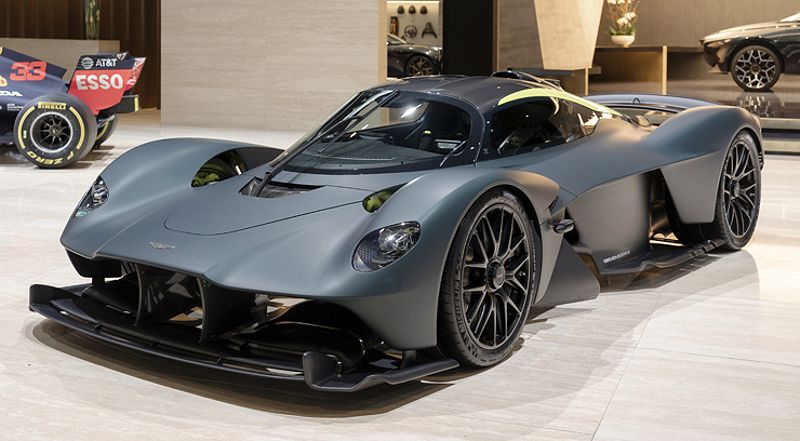The allure of the million-dollar car market extends far beyond sheer speed; it represents a complex interplay of engineering, history, and financial speculation. While some classic models like the Mercedes-Benz W196 appreciate dramatically, others can depreciate significantly depending on condition and market trends. Understanding these dynamics is crucial for potential investors.
Investing in the 1 Million Dollar Car Market: A High-Net-Worth Perspective
When diving into the world of cars for a million dollars , it’s essential to view this market as a luxury asset class that appeals to high-net-worth individuals (HNWIs). The allure of owning a one million dollar car goes beyond mere aesthetics; it represents a unique investment opportunity with the potential for significant returns.
Historical Performance and Future Growth
Historically, the market for 1 million dollar cars has shown resilience and growth. Classic models often appreciate due to their rarity and historical significance. For instance, cars like the Ferrari 250 GTO have become symbols of wealth and taste, with their values soaring over the years. As the automotive landscape evolves, certain modern hypercars are also expected to follow suit.
Factors Influencing Value Appreciation
Several factors contribute to the appreciation of one million dollar cars:
- Rarity: Limited production runs can drive demand and value.
- Condition: Well-preserved vehicles fetch higher prices.
- Provenance: A car’s history, including previous ownership and notable events, can significantly affect its value. Furthermore, the car’s documented history, including participation in significant races or ownership by renowned figures, significantly impacts value. A meticulously maintained service history, documented with original invoices, is also highly sought after.
Comparing Luxury Asset Classes
Investing in cars for a million dollars can be compared to other luxury asset classes like art and real estate. While each market has its nuances, the automotive sector offers unique benefits, including tangible enjoyment and the thrill of ownership. Diversifying your portfolio with high-value cars can provide a hedge against inflation and market volatility.
Tax Implications and Estate Planning
Owning a 1 million dollar car can have specific tax implications, including property taxes and potential capital gains taxes upon resale. Understanding these factors is crucial for HNWIs, and consulting a tax professional can help in navigating these complexities.
Successful Investment Examples
The stories of successful investments in this market are numerous. For example, classic cars from the 1960s have seen their values skyrocket, with some models appreciating by over 500% in just a decade. These examples highlight the potential rewards for informed investors.
Types of $1 Million Cars: A Collector’s Guide for HNWIs
As you explore the 1 million dollar car market, you’ll encounter various categories of vehicles, each with its unique charm and investment potential.
Classic Cars: Timeless Treasures
Classic cars represent a significant segment of the cars for a million dollars market. These vehicles often have historical significance and a rich racing heritage, making them highly desirable. Notable examples include:
- Ferrari 250 GTO : With only 36 units produced, it’s considered the holy grail of classic cars, selling for upwards of $48 million. The values of these cars are frequently influenced by auction results. For example, a Ferrari 250 GTO sold for $70 million at auction in 2018, setting a record at the time. However, it’s important to note that these are exceptional sales; the average price for a well-preserved example may be considerably lower.

- Mercedes-Benz W196: This iconic race car, driven by Juan Manuel Fangio, fetched $29.6 million at auction.
- Jaguar D-Type: Known for its success at Le Mans, it commands a price tag of around $21.8 million.
Investing in classic cars often involves restoration costs, which can be substantial. However, the potential for appreciation often outweighs these expenses.
Modern Hypercars: The Cutting Edge of Performance
Modern hypercars are a thrilling category of one million dollar cars that showcase the latest in automotive technology and design. These cars are not just about speed; they represent the pinnacle of engineering. Some standout models include:
- Bugatti Chiron : With 1,500 horsepower and a top speed exceeding 300 mph, it embodies luxury and performance.

- Rimac Nevera: This electric hypercar redefines speed, boasting a 0-60 mph time of under 2 seconds.
- Pininfarina Battista: Combining stunning design with electric performance, it’s a perfect example of the future of automotive excellence.
While modern hypercars like the Bugatti Chiron and Rimac Nevera represent cutting-edge technology, their resale values are still relatively unpredictable compared to established classic car markets. Significant depreciation can occur within the first few years of ownership. This is partly due to the rapid pace of technological advancements in the automotive sector. The innovation and exclusivity of these vehicles make them appealing to collectors and investors alike.
Bespoke and Limited-Edition Models: Uniquely Yours
Bespoke and limited-edition models add a layer of personalization to the 1 million dollar car market. Manufacturers like Rolls-Royce and Lamborghini offer customization options that allow owners to create a vehicle that reflects their personality. The exclusivity and unique designs of these cars often lead to increased collector value.
Due Diligence and Risk Management for $1 Million Car Purchases
Buying a one million dollar car requires careful consideration and due diligence. Here are some critical aspects to keep in mind:
Authentication and Provenance Verification
Ensuring the authenticity of a high-value vehicle is paramount. Buyers should seek independent appraisals and verify provenance through reputable auction houses. This step is crucial to avoid costly mistakes.
Identifying Potential Risks
The 1 million dollar car market is not without risks. Market fluctuations can lead to depreciation, while maintenance and storage costs can add up quickly. Understanding these risks is essential for any potential investor.
Mitigating Risks
To mitigate risks, consider the following strategies:
- Insurance: Obtain comprehensive insurance policies tailored for high-value vehicles.
- Professional Advice: Engage with automotive consultants for insights into the market and specific models.
- Thorough Inspections: Always conduct detailed inspections before purchasing to assess the vehicle’s condition.
Legal Considerations
Navigating the legal aspects of buying and selling cars for a million dollars is crucial. Understanding contracts, ownership transfers, and import/export regulations can save you from future headaches.
Owning and Maintaining a $1 Million Car: The Ongoing Commitment
Owning a 1 million dollar car is not just about the initial purchase; it involves ongoing commitments and responsibilities.
Storage Solutions
Proper storage is vital to preserve the condition and value of your investment. Climate-controlled garages and specialized storage facilities are ideal for protecting these high-value vehicles from environmental factors.
Insurance Options
Insuring a one million dollar car requires specialized coverage. Look for policies that offer agreed-value coverage and high limits to ensure adequate protection.
Maintenance and Repair
Regular maintenance is essential for preserving the value of your investment. Specialized mechanics and sourcing authentic parts can be costly but are necessary to keep your vehicle in top condition.
Transportation and Logistics
If you need to transport your 1 million dollar car, consider secure transport options to ensure its safety during transit. This is especially important for rare and high-value vehicles.
Tax Implications
Be aware of the tax implications associated with owning a high-value car. Property taxes and potential import duties can add to the overall cost of ownership.
The Future of the $1 Million Car Market: Trends and Predictions
As the automotive landscape evolves, the 1 million dollar car market is expected to adapt and thrive. Here are some trends to watch:
The Growing Influence of Electric Hypercars
Electric hypercars are gaining traction, offering impressive performance while addressing environmental concerns. Models like the Rimac Nevera and Pininfarina Battista are set to shape the future of high-value automotive investments.
Sustainability Concerns
As sustainability becomes a priority, manufacturers are exploring innovative materials and production processes. This shift will likely impact ownership experiences and investment strategies.
The Ongoing Appeal of Classic Cars
Despite the rise of electric vehicles, the demand for classic cars remains strong. Their historical significance and timeless designs ensure they retain their allure for collectors and investors.
Technological Advancements
The future may bring advancements like autonomous driving and AI integration, which could redefine the driving experience and influence the 1 million dollar car market.
Emerging Markets
As wealth increases globally, emerging markets are likely to contribute to the growth of the high-end automotive sector. New players and brands are expected to enter the market, offering fresh investment opportunities.
Recent Market Developments
The increasing popularity of electric hypercars is driving innovation and investment. The success of brands like Rimac and the announcement of new electric hypercar models from established manufacturers signal a shift in the market. Additionally, supply chain disruptions and inflation have impacted the cost of both acquiring and maintaining high-value vehicles, leading to increased uncertainty in pricing and potential investment returns.
Building a $1 Million Car Collection: Strategies for HNWIs
For those looking to build a collection of cars for a million dollars, here are some strategies to consider:
Developing a Long-Term Investment Strategy
A well-thought-out investment strategy is crucial for successful collecting. Consider factors like market trends, potential appreciation, and personal interests when developing your plan.
Diversifying Your Collection
Diversification across car types, brands, and eras can mitigate risks and enhance the overall value of your collection. This approach ensures that you’re not overly reliant on any single vehicle or category.
Utilizing Professional Advice
Engaging with automotive consultants can provide valuable insights into market trends and specific models. Their expertise can help you make informed decisions and avoid pitfalls.
Networking Within the Collector Community
Building relationships with fellow collectors can open doors to exclusive opportunities and insider knowledge. Attend events and auctions to connect with like-minded individuals.
Exploring Ownership Alternatives
Consider options like fractional ownership or investment funds that allow you to participate in the 1 million dollar car market without the full financial commitment of direct ownership.
Frequently Asked Questions (FAQ)
What are the typical insurance costs for a $1 million car?
Insurance costs can vary significantly based on the car’s value, location, and coverage level. Expect to pay tens of thousands of dollars annually for adequate protection.
How much does it cost to maintain a $1 million car annually?
Annual maintenance can range from $20,000 to over $100,000, depending on the car’s age, condition, and required services.
Where can I find reputable sources for purchasing a $1 million car?
Reputable auction houses like RM Sotheby’s and Gooding & Company, along with specialized dealerships and private collectors, are excellent starting points. Always conduct thorough due diligence.
What are the tax implications of owning a $1 million car?
Tax implications vary by location and may include property taxes, import duties, and potential capital gains taxes upon sale. Consult a tax professional for personalized advice.
What is the best way to store a $1 million car?
A climate-controlled garage with security systems is ideal. Specialized storage facilities that offer maintenance and insurance services are also great options.
Conclusion
The 1 million dollar car market presents a unique investment opportunity for high-net-worth individuals seeking both prestige and financial returns. By understanding market dynamics, conducting thorough due diligence, and employing a sound investment strategy, HNWIs can navigate this exclusive sector successfully and build a valuable collection. Contact a qualified financial advisor specializing in luxury assets to discuss personalized investment strategies.
